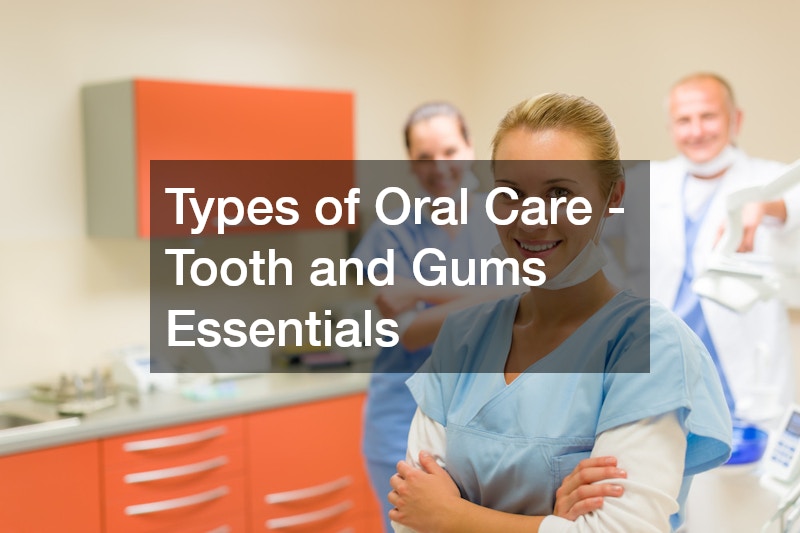Introduction
Oral health is an integral part of overall well-being, influencing not just the mouth but also the entire body. Good oral care practices contribute to a healthy lifestyle, impacting everything from digestion to self-esteem. With a multitude of services available, understanding the various types of oral care can help you make informed decisions about your dental health. This article explores the diverse landscape of oral care, covering essential topics such as the differences between dentists and orthodontists, the importance of routine and restorative care, and more specialized areas like braces and dentures.
At the heart of oral care is the prevention of dental issues, which can lead to serious health complications if left untreated. Regular check-ups with dental professionals play a vital role in maintaining oral hygiene, catching problems early, and providing treatments that keep your teeth and gums healthy. With the rise of cosmetic dentistry, individuals are also increasingly focused on enhancing their smiles, making aesthetic considerations an important part of the conversation around oral health.
Understanding the roles of various dental professionals is crucial. For instance, while general dentists provide routine care, orthodontists specialize in correcting misaligned teeth and jaws. Knowing when to consult a specific type of dental care provider can save time, money, and discomfort down the line.
Moreover, modern dentistry has advanced significantly, with innovations such as Invisalign braces and affordable dental implants making it easier than ever for people to achieve optimal oral health. As you navigate through this article, you’ll gain insight into the various dimensions of oral care, empowering you to take proactive steps in your dental journey. This comprehensive guide aims to demystify the world of dental care, helping you understand the significance of each aspect and the essential role they play in maintaining a healthy smile.
Dentist Vs. Orthodontist
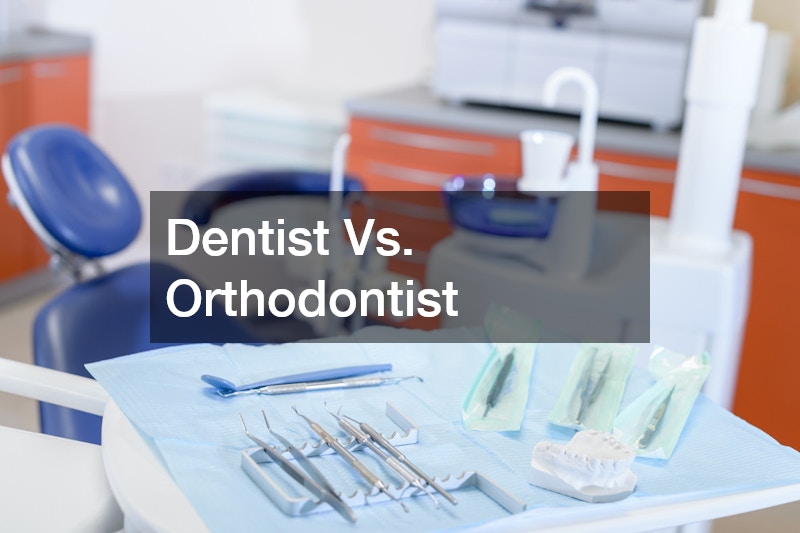
When it comes to oral care, the terms “dentist” and “orthodontist” are often used interchangeably, but they serve distinct purposes in dental health.
Dentists, particularly general dentists, focus on overall oral health, offering services such as routine check-ups, cleanings, fillings, and preventive care. They are the first line of defense against dental problems, diagnosing issues like cavities, gum disease, and oral infections.
On the other hand, an orthodontist is a specialist who has completed additional training in the field of orthodontics, focusing specifically on diagnosing, preventing, and correcting misaligned teeth and jaws. If you’re searching for the best orthodontist, consider factors like qualifications, experience, and patient reviews. Orthodontic treatment often involves braces or clear aligners, like Invisalign, to improve both function and aesthetics.
Understanding these differences is crucial. While general dentists can address a broad range of oral health issues, an orthodontist is the go-to expert for alignment problems. If you have concerns about your bite, spacing of teeth, or jaw alignment, consulting an orthodontist may be the best route to achieving a healthier, straighter smile.
Personal Preference
Personal preference plays a significant role in selecting the right dental care provider, especially when it comes to cosmetic dentistry.
Cosmetic dentists specialize in enhancing the appearance of your smile through various procedures, such as teeth whitening, veneers, and bonding. If you’re considering making aesthetic changes to your teeth, your choice of a cosmetic dentist should be guided by their expertise, portfolio of previous work, and patient testimonials.
However, it’s essential to ensure that any cosmetic procedure doesn’t compromise your oral health. A good cosmetic dentist will prioritize both function and aesthetics, ensuring that your teeth remain healthy while achieving the desired look. When making this decision, consider scheduling consultations with multiple cosmetic dentists to find one whose approach aligns with your vision for your smile.
Additionally, ask about their techniques, the materials they use, and the expected outcomes of various procedures. A trusted cosmetic dentist will provide thorough explanations and be transparent about potential risks, ensuring that you’re making an informed choice.
Outside of Routine Care
While routine dental care is essential, there are times when you may need to seek additional help from local emergency dentists. Dental emergencies can occur unexpectedly, whether it’s a knocked-out tooth, severe pain, or signs of infection. Knowing how to identify a dental emergency can save your tooth and relieve pain.
Local emergency dentists are equipped to handle urgent situations that require immediate attention. It’s beneficial to have a reliable emergency dental service in your contacts, especially if you’re prone to accidents or have ongoing dental issues. When faced with a dental emergency, prompt action can significantly impact the outcome, making it vital to know whom to call.
Aside from emergency situations, having a good relationship with your local dentist can help ensure you receive prompt referrals to specialists when necessary. This collaboration can enhance your overall dental experience and help you navigate any complications that arise outside of routine care.
Restoring Your Teeth
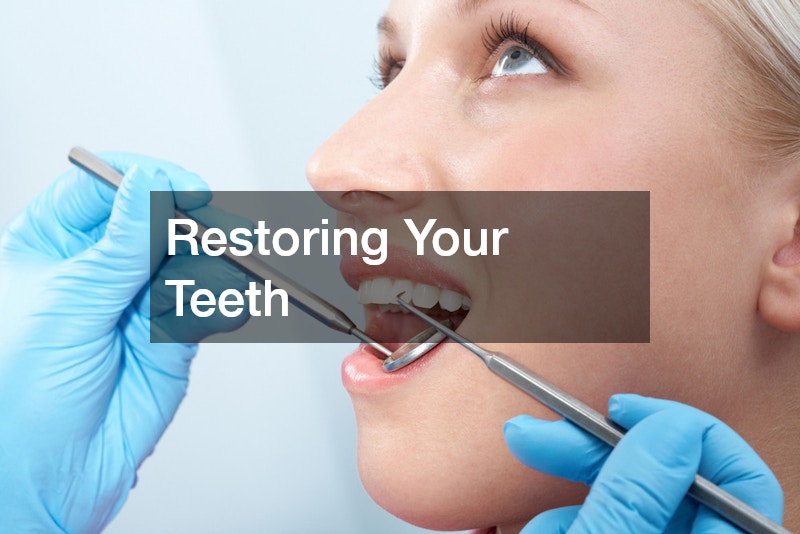
Restorative dentistry is a branch of dental care focused on repairing and restoring damaged teeth to their original function and appearance. This area of dentistry is crucial for individuals who have experienced tooth loss or damage due to decay, injury, or other health issues. Procedures in restorative dentistry can include fillings, crowns, bridges, and dental implants.
When discussing restorative dentistry, it is essential to consider your individual needs. If you have a damaged tooth, your dentist may recommend a filling or a crown based on the extent of the damage. For those who have lost a tooth entirely, dental implants offer a long-lasting solution that mimics the look and function of natural teeth.
A successful restorative procedure not only improves the aesthetic of your smile but also enhances your ability to chew and speak effectively. Additionally, restorative dentistry can help prevent further dental issues, such as shifting teeth or jaw problems, by addressing the underlying problems promptly.
Routine Care
General dentists are fundamental to your oral health, providing essential routine care that forms the backbone of dental hygiene. Routine visits typically include comprehensive exams, professional cleanings, and preventive measures such as fluoride treatments and sealants.
Regular check-ups, usually recommended every six months, help identify potential issues before they escalate into significant problems. General dentists can detect early signs of gum disease, cavities, and even oral cancers. Maintaining consistent visits to your general dentist ensures your teeth and gums stay healthy and can save you time and money in the long run.
In addition to professional care, establishing a daily oral hygiene routine at home is crucial. This includes brushing twice daily, flossing, and using mouthwash to reduce plaque and bacteria. Your general dentist can provide tailored advice based on your specific needs, helping you create a personalized oral care routine that works for you.
Tooth Removal and Surgery
Sometimes, tooth extraction becomes necessary due to severe decay, overcrowding, or disease. In these cases, an oral surgeon is the specialist to consult. Oral surgeons are trained to perform complex dental procedures, including tooth extractions, jaw surgeries, and corrective surgeries.
The decision to have a tooth removed can be daunting, but understanding the process can alleviate some anxiety. Before any surgery, your oral surgeon will conduct a thorough examination, possibly including X-rays, to assess the tooth and surrounding structures. They will explain the procedure, recovery expectations, and aftercare to ensure you are well-prepared.
Post-operative care is critical to successful recovery. Following your oral surgeon’s instructions can minimize discomfort and promote healing. Whether it’s managing pain or avoiding certain foods, adhering to post-surgery guidelines is essential for a smooth recovery.
Getting Braces
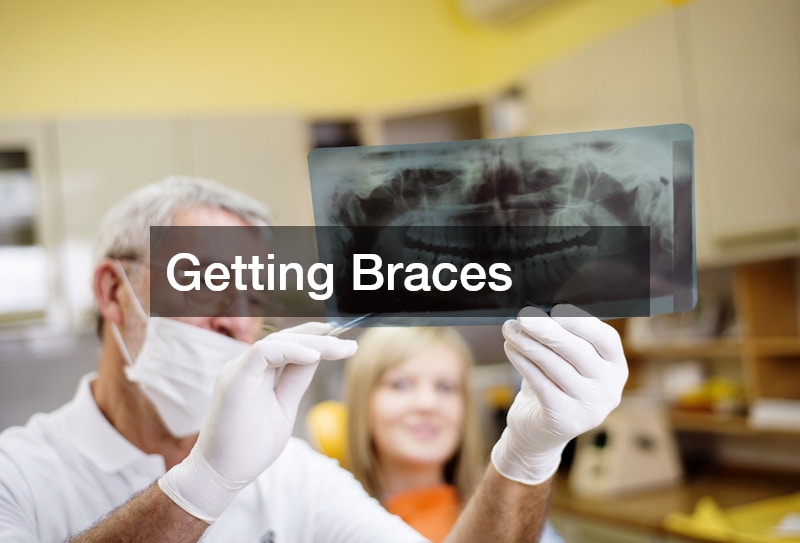
For those with misaligned teeth or jaw issues, getting braces is often a transformative experience. Invisalign braces have gained popularity as a more discreet alternative to traditional metal braces. These clear aligners are custom-made to fit snugly over your teeth, gradually shifting them into the desired position.
The process of getting braces involves an initial consultation with an orthodontist, who will evaluate your dental needs and create a personalized treatment plan. One of the significant advantages of Invisalign is the ability to remove the aligners for eating and cleaning, making them a convenient option for many patients.
It’s important to understand that while Invisalign offers aesthetic benefits, it requires diligence in wearing the aligners for the recommended hours each day. Regular check-ups with your orthodontist will ensure that your treatment is progressing as planned.
Affordable Dental Care
Affording dental care can sometimes be a challenge, but there are options available, such as affordable dental implants. Dental implants provide a long-term solution for missing teeth, restoring both function and appearance.
When considering dental implants, it’s crucial to discuss your financial options with your dentist. Many practices offer payment plans or financing options to help make dental care more accessible. Additionally, some community health centers provide services at reduced costs, which can be beneficial for those without insurance.
Researching your options and being proactive about your dental health can lead to more affordable solutions, ensuring that you maintain a healthy smile without breaking the bank.
Supplemental Teeth
For individuals missing several teeth, dentures can provide a practical and effective solution. Dentures are removable appliances that replace missing teeth, restoring functionality and improving appearance.
There are two main types of dentures: complete and partial. Complete dentures are used when all teeth are missing, while partial dentures are for those who still have some natural teeth remaining. The process of getting dentures involves several steps, including consultations, fittings, and adjustments to ensure comfort and proper function.
While dentures can significantly enhance quality of life, they require regular care to maintain their condition. Cleaning them properly and following your dentist’s care instructions will prolong their lifespan and ensure they remain a functional part of your oral health.
Braces Care
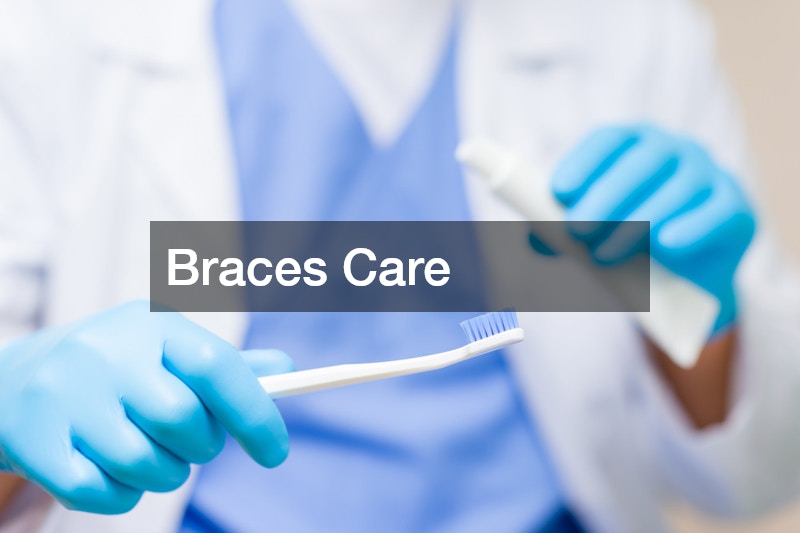
After getting braces, maintaining them is vital for ensuring a successful outcome. An orthodontic retainer is often necessary after braces are removed to keep teeth in their new position. Retainers can be fixed or removable and are essential for preventing teeth from shifting back to their original places.
Caring for braces involves special attention to oral hygiene. Brushing and flossing can be more complicated with braces, but it’s essential to prevent plaque build-up and potential decay. Your orthodontist will provide specific instructions on how to care for your braces effectively.
Regular follow-ups with your orthodontist are necessary to monitor progress and make any adjustments. Adhering to care instructions and maintaining consistent appointments will lead to the best results.
Conclusion
In conclusion, understanding the various types of oral care available can empower you to take control of your dental health. From routine visits to general dentists and specialized services from orthodontists to the transformative power of restorative dentistry and cosmetic enhancements, each aspect plays a crucial role in achieving and maintaining a healthy smile.
The significance of regular dental check-ups cannot be overstated. These visits are vital for early detection of potential issues, preventive care, and maintaining overall oral hygiene. During these appointments, your dentist can provide personalized advice based on your unique dental history and lifestyle, guiding you toward effective practices that enhance your oral health. The importance of daily routines, such as brushing and flossing, cannot be underestimated, as these habits lay the groundwork for successful long-term oral health.
Moreover, advancements in dental technology have made procedures like Invisalign and dental implants more accessible, allowing individuals to pursue both functional and aesthetic improvements. Innovations in pain management and minimally invasive techniques have also improved patient experiences, making dental visits less daunting. Understanding the options available empowers you to ask informed questions and participate actively in your care decisions.
Knowing when to seek emergency care or specialized treatment can prevent minor issues from escalating into serious problems. Building a relationship with your dental care providers ensures that you receive comprehensive care tailored to your unique needs. For instance, maintaining open communication with your orthodontist about your experience with braces can lead to more effective adjustments and better outcomes.
Lastly, the conversation around affordable dental care is more critical than ever. Understanding your options for payment and community resources can make a significant difference in accessing the care you need. Many dental practices offer flexible payment plans, and exploring local community health resources can uncover additional options for those facing financial constraints. Being proactive in your search for affordable care is essential, as neglecting dental issues due to cost can lead to more severe problems and higher expenses down the line.
With the right knowledge and proactive approach, you can navigate the complexities of oral care, leading to a healthier, more confident smile for years to come. Embracing a comprehensive view of dental health will not only enhance your oral hygiene practices but will also contribute to your overall well-being, positively impacting both your physical health and your quality of life.

